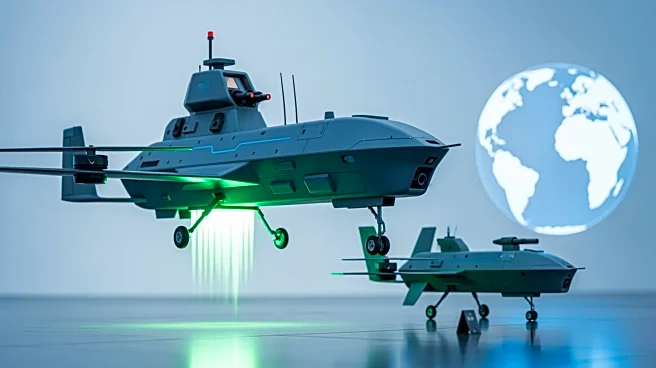What's Happening?
Italian shipbuilder Fincantieri has entered into a strategic partnership with Defcomm, an Italian start-up specializing in unmanned maritime solutions, to advance the development of autonomous surface units. This collaboration focuses on co-investment
to accelerate the industrialization of surface drones designed by Defcomm, which have already undergone extensive testing. These drones are intended for surveillance, intelligence, and patrol missions and can operate autonomously, remotely, or manually. The partnership will also enable Fincantieri to integrate these autonomous vehicles into its naval units, catering to both domestic and international clients. The collaboration aims to demonstrate the advanced capabilities and interoperability of these platforms in complex scenarios.
Why It's Important?
This partnership underscores Fincantieri's commitment to innovation within the naval industry, positioning it as a leader in the development of cutting-edge maritime technologies. By investing in autonomous surface units, Fincantieri is poised to meet the growing global demand for advanced surveillance and patrol solutions. This move could significantly impact the naval defense sector, offering enhanced capabilities for intelligence and security operations. The collaboration also highlights the potential for increased competitiveness in the global market for surface drones, which are becoming increasingly vital for modern naval operations. Stakeholders in the defense and maritime industries stand to benefit from the technological advancements and operational efficiencies that this partnership promises.
What's Next?
The next steps involve further development and integration of these autonomous systems into Fincantieri's naval units. Training activities are planned to showcase the platforms' capabilities and their interoperability in complex scenarios. As the partnership progresses, it is likely to attract attention from international clients seeking advanced maritime solutions. The collaboration may also prompt other industry players to invest in similar technologies, potentially leading to a broader adoption of autonomous systems in naval operations.















